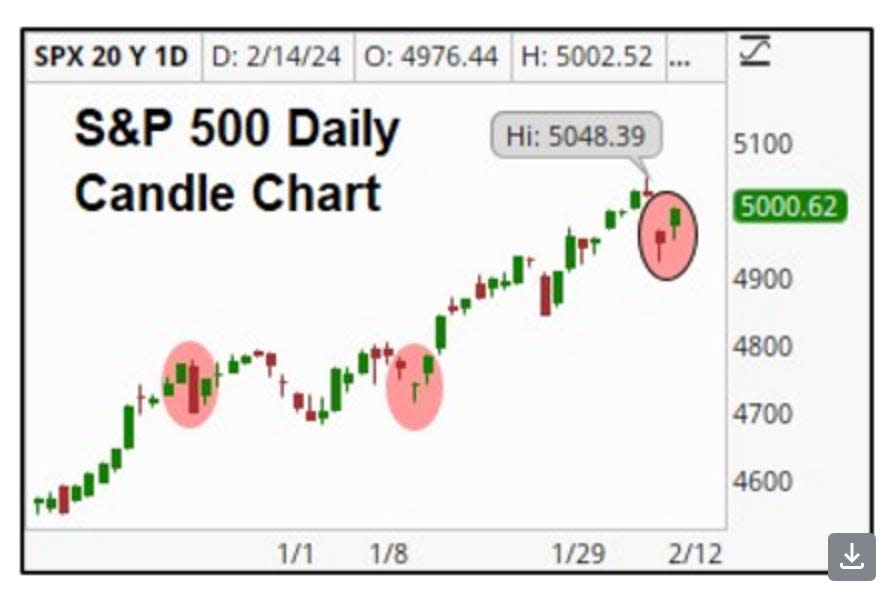Stocks are vulnerable to a 5% ‘air-pocket drawdown’ as greedy traders short volatility, research firm says

-
Stocks are vulnerable to a 5% “air-pocket drawdown” as traders short volatility, Sevens Report Research said.
-
VIX futures contract expirations recently started having a bigger impact on the S&P 500, reminiscent of 2018’s “Volmageddon” episode.
-
“These expirations will remain dates to keep in mind as the threat of volatility will be elevated as we move further into 2024,” a note said.
Tuesday’s stock-market pullback after a hot inflation report actually showed us something else about the market, one research firm says — and it could lead to a sell-off later this year.
“Stocks on Tuesday seemed to have an additional influence weighing on the broader market,” Tom Essaye, the founder and president of Sevens Report Research, wrote in a note on Thursday. “It turns out that it did… an overcrowded short side of the options market which was reminiscent of the 2018 ‘Volmageddon’ event.”
The “Volmageddon” episode happened six years ago after traders piled into a bunch of ETFs that were designed to return the inverse of market volatility (essentially betting on a calm market). And when volatility went up in February 2018, it tanked those strategies, sending the S&P 500 down more than 10% in two weeks.
Investors appear to be taking risky bets again, specifically in VIX futures, which are assets that let investors bet on future volatility. As VIX futures expire, the S&P 500 is seeing stronger price reactions.

“Based on the magnitude of the move in VIX futures on Tuesday, there is an increasing threat that the rising level of greed in the ‘short-volatility’ trade, similar to what we saw in 2018, could result in an air-pocket drawdown of 5% or more in the S&P 500,” Essaye said.
The short-volatility trade became very popular after 2010 when volatility was low, and traders could make money betting against market turbulence.
The Cboe Volatility Index, which is also dubbed as the VIX or the market’s “fear gauge,” is sitting at 13.97, near historical lows.
“The rebound in interest in short-volatility strategies is once again posing a risk to the broader markets here as a negative catalyst can clearly spark a momentous, derivatives-driven selloff in the broader stock market like that which we saw in 2018,” Essaye said.
It’s not a major concern right away as volatility upticks have been small, and the S&P 500 has remained resilient. The market shrugged off Tuesday’s pullback quite fast. But it’s worth keeping an eye on as the year progresses.
“Going forward, these expirations will remain dates to keep in mind as the threat of volatility will be elevated as we move further into 2024,” Essaye said.
Read the original article on Business Insider

